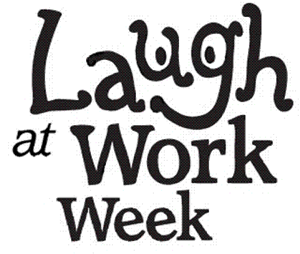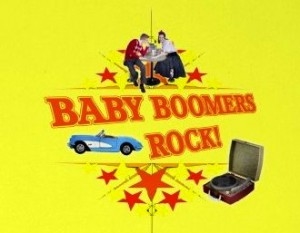April Fools or All Fools Day 2024 is on Monday, April 1, 2024: The Origins of April Fool's Day?
Monday, April 1, 2024 is April Fools or All Fools Day 2024. Laughter and Business Mingle on April Fool's Day! april fool's day business and
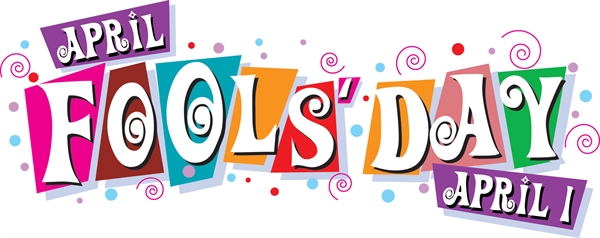
April Fools' Day, sometimes called All Fools' Day, is one of the most light hearted days of the year. Its origins are uncertain. Some see it as a celebration related to the turn of the seasons, while others believe it stems from the adoption of a new calendar.
New Year's Day Moves
Ancient cultures, including those as varied as the Romans and the Hindus, celebrated New Year's Day on or around April 1. It closely follows the vernal equinox (March 20th or March 21st.) In medieval times, much of Europe celebrated March 25, the Feast of Annunciation, as the beginning of the new year.
In 1582, Pope Gregory XIII ordered a new calendar (the Gregorian Calendar) to replace the old Julian Calendar. The new calendar called for New Year's Day to be celebrated Jan. 1. That year, France adopted the reformed calendar and shifted New Year's day to Jan. 1. According to a popular explanation, many people either refused to accept the new date, or did not learn about it, and continued to celebrate New Year's Day on April 1. Other people began to make fun of these traditionalists, sending them on "fool's errands" or trying to trick them into believing something false. Eventually, the practice spread throughout Europe.
Problems With This Explanation
There are at least two difficulties with this explanation. The first is that it doesn't fully account for the spread of April Fools' Day to other European countries. The Gregorian calendar was not adopted by England until 1752, for example, but April Fools' Day was already well established there by that point. The second is that we have no direct historical evidence for this explanation, only conjecture, and that conjecture appears to have been made more recently.
Constantine and Kugel
Another explanation of the origins of April Fools' Day was provided by Joseph Boskin, a professor of history at Boston University. He explained that the practice began during the reign of Constantine, when a group of court jesters and fools told the Roman emperor that they could do a better job of running the empire. Constantine, amused, allowed a jester named Kugel to be king for one day. Kugel passed an edict calling for absurdity on that day, and the custom became an annual event.
"In a way," explained Prof. Boskin, "it was a very serious day. In those times fools were really wise men. It was the role of jesters to put things in perspective with humor."
This explanation was brought to the public's attention in an Associated Press article printed by many newspapers in 1983. There was only one catch: Boskin made the whole thing up. It took a couple of weeks for the AP to realize that they'd been victims of an April Fools' joke themselves.
Spring Fever
It is worth noting that many different cultures have had days of foolishness around the start of April, give or take a couple of weeks. The Romans had a festival named Hilaria on March 25, rejoicing in the resurrection of Attis. The Hindu calendar has Holi, and the Jewish calendar has Purim. Perhaps there's something about the time of year, with its turn from winter to spring, that lends itself to lighthearted celebrations.
Observances Around the World
April Fools' Day is observed throughout the Western world. Practices include sending someone on a "fool's errand," looking for things that don't exist; playing pranks; and trying to get people to believe ridiculous things.
The French call April 1 Poisson d'Avril, or "April Fish." French children sometimes tape a picture of a fish on the back of their schoolmates, crying "Poisson d'Avril" when the prank is discovered.
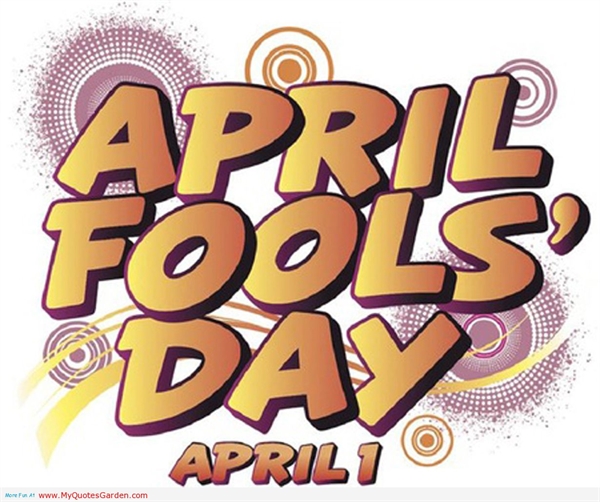
Is this the origin of April fools day ?
No, it's not. I happen to have a brief history that I have saved from a few years ago.
April Fools' Day, sometimes called All Fools' Day, is one of the most light hearted days of the year. Its origins are uncertain. Some see it as a celebration related to the turn of the seasons, while others believe it stems from the adoption of a new calendar.
New Year's Day Moves
Ancient cultures, including those as varied as the Romans and the Hindus, celebrated New Year's Day on or around April 1. It closely follows the vernal equinox (March 20th or March 21st.) In medieval times, much of Europe celebrated March 25, the Feast of Annunciation, as the beginning of the new year.
In 1582, Pope Gregory XIII ordered a new calendar (the Gregorian Calendar) to replace the old Julian Calendar. The new calendar called for New Year's Day to be celebrated Jan. 1. That year, France adopted the reformed calendar and shifted New Year's day to Jan. 1. According to a popular explanation, many people either refused to accept the new date, or did not learn about it, and continued to celebrate New Year's Day on April 1. Other people began to make fun of these traditionalists, sending them on "fool's errands" or trying to trick them into believing something false. Eventually, the practice spread throughout Europe.
Problems With This Explanation
There are at least two difficulties with this explanation. The first is that it doesn't fully account for the spread of April Fools' Day to other European countries. The Gregorian calendar was not adopted by England until 1752, for example, but April Fools' Day was already well established there by that point. The second is that we have no direct historical evidence for this explanation, only conjecture, and that conjecture appears to have been made more recently.
Constantine and Kugel
Another explanation of the origins of April Fools' Day was provided by Joseph Boskin, a professor of history at Boston University. He explained that the practice began during the reign of Constantine, when a group of court jesters and fools told the Roman emperor that they could do a better job of running the empire. Constantine, amused, allowed a jester named Kugel to be king for one day. Kugel passed an edict calling for absurdity on that day, and the custom became an annual event.
"In a way," explained Prof. Boskin, "it was a very serious day. In those times fools were really wise men. It was the role of jesters to put things in perspective with humor."
This explanation was brought to the public's attention in an Associated Press article printed by many newspapers in 1983. There was only one catch: Boskin made the whole thing up. It took a couple of weeks for the AP to realize that they'd been victims of an April Fools' joke themselves.
Spring Fever
It is worth noting that many different cultures have had days of foolishness around the start of April, give or take a couple of weeks. The Romans had a festival named Hilaria on March 25, rejoicing in the resurrection of Attis. The Hindu calendar has Holi, and the Jewish calendar has Purim. Perhaps there's something about the time of year, with its turn from winter to spring, that lends itself to lighthearted celebrations.
Observances Around the World
April Fools' Day is observed throughout the Western world. Practices include sending someone on a "fool's errand," looking for things that don't exist; playing pranks; and trying to get people to believe ridiculous things.
The French call April 1 Poisson d'Avril, or "April Fish." French children sometimes tape a picture of a fish on the back of their schoolmates, crying "Poisson d'Avril" when the prank is discovered.
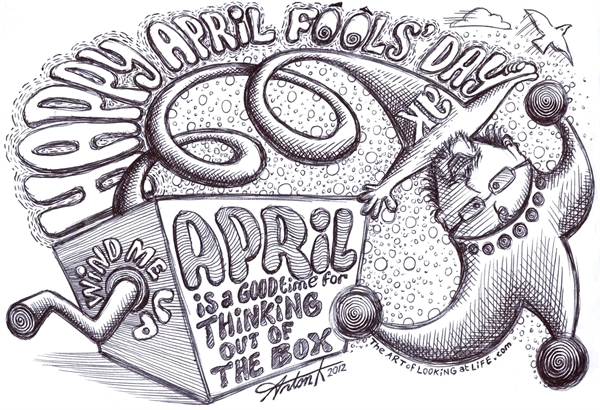
what is the story behind april fool day?
The origin of April Fools' Day is obscure. One likely theory is that the modern holiday was first celebrated soon after the adoption of the Gregorian Calendar; the term referred to someone still adhering to the Julian Calendar, which it replaced.
In many pre-Christian cultures May Day (May 1) was celebrated as the first day of summer, and signaled the start of the spring planting season. An April Fool may have been someone who did this prematurely.
Another possible origin lies in the fact that when King Charles IX of France officially changed the first day of the year from April 1 to January 1, some of his subjects continued using the old system. In the eighteenth century the festival was often posited as going back to the time of Noah. According to an English newspaper article published April 13, 1789, the day had its origin when Noah sent his dove off too early, before the waters had receded; he did this on the first day of the Hebrew month that corresponds with April.



